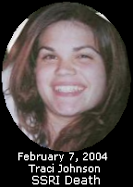16 February 2009
A welcome first step - but HIV is also a neglected disease
Statement by Michelle Childs,
Director of Policy and Advocacy, Campaign for Access to Essential Medicines, Médecins Sans Frontières
in response to the speech by Andrew Witty, CEO, GlaxoSmithKline (GSK) at Harvard Medical School
"Geneva, 16 February 2009 Médecins Sans Frontières welcomes Mr. Witty’s recognition that patents act as a barrier to research and development and that patent pools offer new ways to stimulate research into neglected diseases. Promises now need to be turned into action. The terms of any licences attached to the patent pool will be critical and more detail is needed. Funding sources also need to be identified to develop any products that result from this research.
MSF calls on all other pharmaceutical companies to lift patent barriers and make their molecule compounds and processes available to help develop treatments for neglected diseases and open up their compound libraries to researchers.
But GSK must extend this thinking to include HIV: HIV is also a neglected disease
Mr. Witty claims that a patent pool is meant to focus on diseases with a severe lack of treatments and that there is sufficient innovation for HIV.
He is wrong. In the field of HIV/AIDS treatment, the gap between what is needed and what is available is large. A patent pool can help address that gap and encourage innovation in areas where it’s not happening today.
- We need new fixed-dose combinations: We desperately need new fixed-dose combination drugs that combine multiple compounds into one pill, especially those including newer drugs. But today, patents on individual compounds can stand in the way of the development of fixed-dose combinations.
- We need new paediatric formulations and accelerated paediatric studies. With 90% of HIV-positive children living in sub-Saharan Africa, paediatric studies and formulations are not a priority for pharmaceutical companies: of the 22 antiretrovirals approved by the U.S. Food and Drug Administration, eight are not approved for use in children and nine do not come in any kind of paediatric formulations. And when versions for children do exist, they are often not adapted for use in resource-limited settings (e.g. they need refrigeration or access to safe drinking water or are difficult for caregivers to administer in correct doses). Generic companies have expressed the interest and will to develop AIDS medicines in tablet formulations more suitable for children. But again patent barriers can currently prevent them from doing so, particularly for newer drugs.
Innovation is meaningless if there is no access
Research alone will not ensure that people living in poor countries will receive new treatments. In order to ensure access to the fruits of innovation, the resulting products must be affordable. Yet MSF, along with others providing HIV/AIDS treatment in developing countries, continues to struggle with the affordability of antiretrovirals.
Mr. Witty’s prescription is to offer discounts of at least 75% on drug prices. While any lowering of prices is welcome, this is by no means a panacea. Experience has shown that competition among multiple generic producers is the tried and tested way to drive prices down - by between 95 and 98% since 2000 for the first generation of antiretrovirals.
The limitations of company discounts are particularly evident when they are restricted to least-developed countries only, and exclude middle-income countries – countries such as China, where in the absence of competition GSK charges over US$3,000 for the antiretroviral lamivudine; or Thailand, where Abbott refused to drop the price of heat-stable lopinavir/ritonavir, and it is only after the country issued a compulsory licence that the price fell from close to $3000 to around $500 today.
MSF is thus concerned to see that Mr. Witty appears to be separating out middle-income countries, offering little more than a promise of ill-defined pricing flexibility for these countries.
The price crisis in AIDS medicines is set to return.
Yet as more and more newer drugs are being patented in key generic producing countries, generic competition will no longer be able to act as the catalyst for price reductions as it did in the recent past.
HIV/AIDS is a disease that requires life-long treatment and people need access to newer more potent, and less toxic drugs when they experience side effects, or when they develop drug resistance.
The improved WHO-recommended regimen for first-line AIDS treatment costs, at best, between $613 and $1,033 using originator products. This is a seven to twelve-fold increase compared to older first-line treatments - which thanks to the effects of generic competition, are now available for $87 for one patient’s yearly treatment. For second-line treatments, the prices are, at best, up to 17 times more expensive, in countries that cannot access generic versions because of patent protection.
New ways to keep medicines affordable must thus be set in motion. Increased competition is the best way to do that. This can either happen through compulsory licences, by countries following Thailand’s lead. Or it can happen without the need for confrontation and litigation, through a patent pool, such as the recent proposal by the drug purchasing facility UNITAID to establish a voluntary patent pool for HIV medicines for use in lower and middle income countries.
MSF calls on GSK to collaborate with the UNITAID and make relevant intellectual property available through a voluntary patent pool for AIDS medicines."
(It's published at MSF site here)
They don't have any concern with health whatsoever.
















4 comments:
Hi Ana!
I guess you are a little bit obsessed with bloging.
Take care!
Ana
Really?
Do you really think I'm obsessed?
No!
Perhaps you are not familiar with "obsessed" concept.
Take a look okay?
Bye,
Ana
Okay.
I will search the DSM.
Thank you for the visit.
Ana
Post a Comment